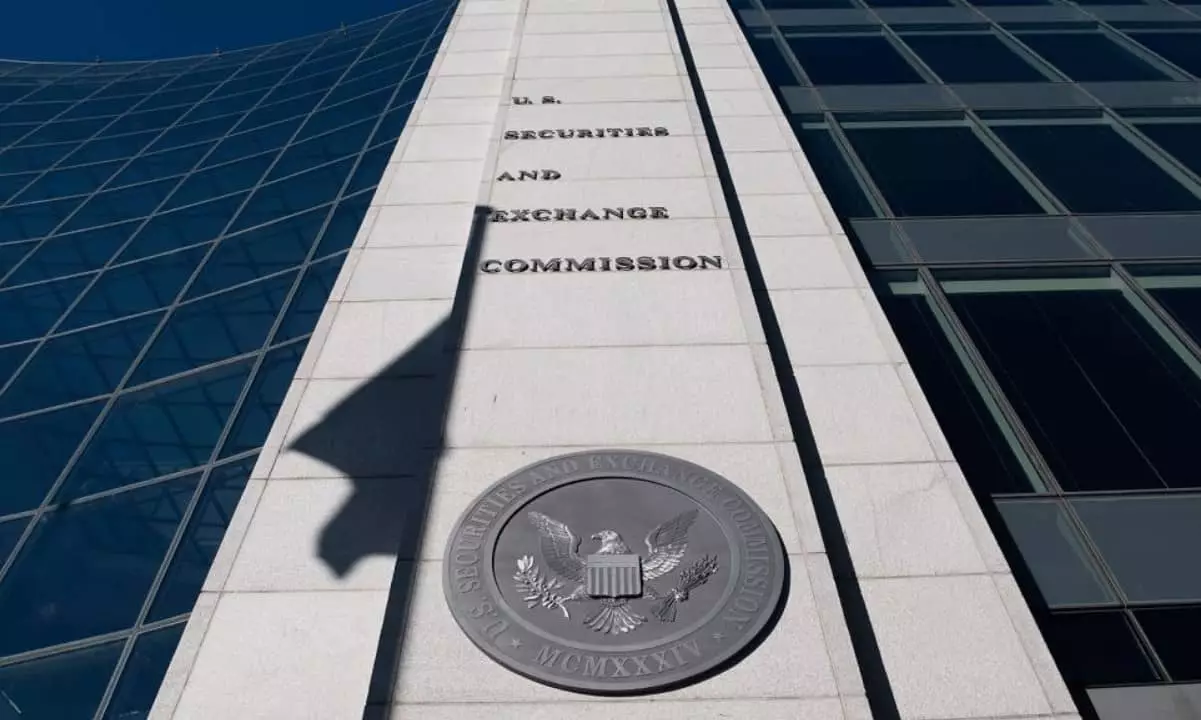The landscape of cryptocurrency is evolving rapidly, and with it, the necessity for coherent regulatory frameworks has grown increasingly paramount. A recent letter from a coalition of Republican lawmakers led by Rep. Patrick McHenry and Sen. Cynthia Lummis has spotlighted significant concerns regarding the Securities and Exchange Commission’s (SEC) handling of crypto custody regulations, specifically relating to Staff Accounting Bulletin No. 121 (SAB 121). Their critiques raise broader questions about regulatory processes, transparency, and how these factors affect investor protections in a burgeoning market.
SAB 121, created without thorough consultation with key regulators, mandates that custodians of digital assets recognize a liability on their balance sheets that reflects the fair market value of the crypto they hold. The lawmakers argue that this directive deviates from traditional accounting principles, potentially misrepresenting custodians’ economic obligations and leading to a misinformation cascade that exposes consumers to increased risks. It is imperative to analyze the ramifications of such a fundamental change in accounting practices, as it can adversely affect how financial health is communicated to stakeholders.
The lawmakers contend that bypassing a formal rulemaking process undermines the integrity of regulatory governance, suggesting that the SEC’s quandaries are symptomatic of a broader issue. It is not merely a matter of regulatory dissent; it bespeaks a worrying trend where established protocols designed to safeguard fairness and transparency may be circumvented in favor of expediency. This disregard for adequate stakeholder consultation raises eyebrows regarding the legitimacy of the regulatory framework being established for cryptocurrency custodians.
The letter raises paramount concerns regarding the SEC’s inconsistent application of SAB 121, notably highlighting preferential treatment granted to certain financial institutions, including BNY Mellon. Such discrepancies lead to serious implications for market fairness. It showcases a troubling scenario where the SEC is accused of permitting selective exemptions, effectively creating a tiered system where compliance is conditional and arbitrary. The ramifications of selective enforcement can undermine the public’s confidence in regulatory bodies, as it gives the impression of favoritism and inequity among institutions.
The overarching concern is that if regulations are applied unequally, the very foundation of investor protections may crumble. Constructing a forthright regulatory environment relies heavily on consistent and transparent practices, which in turn breed investor trust. The lawmakers’ call for rescinding SAB 121 underscores this need for uniformity and reinforces the notion that any deviation from established regulatory norms should be subjected to scrutiny and discourse.
The criticisms from lawmakers also beg the question of accountability within the SEC and its decision-making processes. By applying exemptions on a case-by-case basis, the SEC runs the risk of “picking winners and losers” in the crypto space, which could have lasting consequences on market competitiveness. The suggestion that the SEC is selectively enforcing rules indicates an urgent need for clear guidelines that apply equitably across the board. Lawmakers like McHenry and Lummis are advocating for not merely a repeal of SAB 121 but a deeper introspection into the regulatory landscape, pushing for a system grounded in transparency and compliance with established laws.
The governance structure must embody the principles of fairness and efficiency, which are crucial for the healthy development of the crypto ecosystem. Establishing a dialogue that includes various stakeholders in the regulatory conversation would help develop an understanding of the most effective pathways to ensuring both innovation and protection in the cryptocurrency marketplace.
As the cryptocurrency market continues to grow and evolve, the regulatory framework surrounding it will need to adapt accordingly. The SEC’s response to the criticisms surrounding SAB 121 will not only shape the future of crypto custody but also serve as a litmus test for the integrity of regulatory bodies in maintaining equitable and transparent market conditions. It is crucial to recalibrate the balance between innovation and regulation to ensure that both consumer protections and market integrity are maintained. In doing so, the SEC can foster a robust environment where innovation is encouraged, but not at the expense of the foundational principles that underpin a fair marketplace. The dialogue initiated by lawmakers is essential in steering this discourse towards that goal.















Leave a Reply